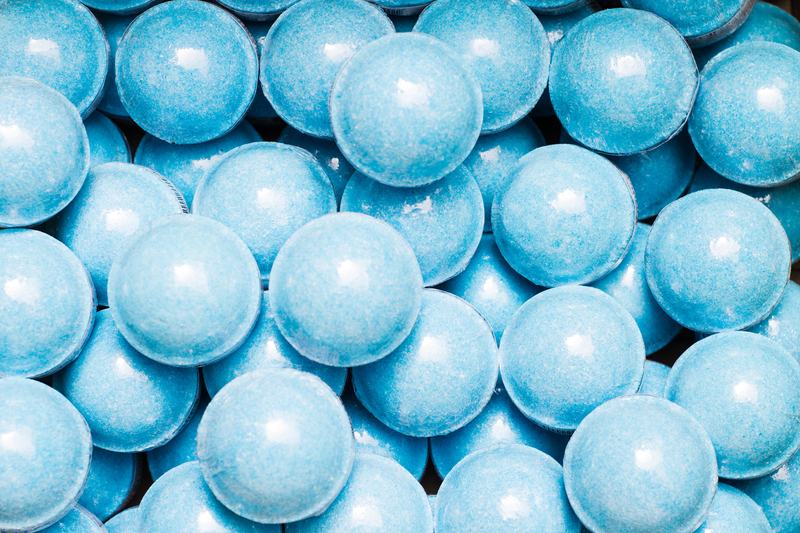Revitalize Your Jewellery with Proven Cleaning Methods
Posted on 21/09/2025
Revitalize Your Jewellery with Proven Cleaning Methods
Your jewellery isn't just an accessory--it's a statement, a symbol, and sometimes a treasured heirloom. Over time, even the brightest gems and metals can lose their lustre due to exposure to everyday elements. With the right care and professional cleaning tips, you can breathe new life into your jewelry collection and keep it sparkling for years to come.
Why Your Jewellery Needs Regular Cleaning
Jewellery encounters constant wear and tear--skin oils, lotions, perfumes, dust, and the environment can all contribute to dulling its sparkle. Here are some primary reasons jewellery cleaning is essential:
- Preserves Shine: Regular cleaning removes grime and restores the original gleam of your favorite pieces.
- Prevents Damage: Accumulated dirt can scratch soft gemstones and metals, causing irreversible damage if not addressed on time.
- Ensures Hygiene: Rings and earrings, in particular, can harbor bacteria, which could lead to skin irritation or infection.
- Protects Your Investment: Jewellery often holds significant monetary and sentimental value--careful maintenance helps preserve both.

Understanding Different Jewellery Materials
Each piece of jewellery is unique, and so are its care requirements. Not all cleaning methods suit every material. Here's a breakdown of common jewellery materials and their cleaning needs:
Gold Jewellery
- Relatively resilient but can scratch if scrubbed harshly.
- Should be cleaned using gentle solutions to avoid stripping away its natural sheen.
Silver Jewellery
- Prone to tarnishing due to chemical reactions with air and moisture.
- Needs specific anti-tarnish treatments in its cleaning regimen.
Platinum and White Gold
- More stable than other precious metals but can lose brightness from residue build-up.
- White gold may have a rhodium plating that requires gentle maintenance.
Gemstone Jewellery
- Gemstones like diamonds, rubies, sapphires are durable.
- Softer stones (pearls, opals, emeralds) are delicate and often require special handling.
Top Proven Methods to Clean Your Jewellery at Home
Now that you know why and how jewellery cleaning makes a difference, let's explore proven cleaning methods you can try at home. These techniques are effective, gentle, and designed to revitalize your favourite accessories without risking any damage.
1. Gentle Soap and Warm Water Bath
This method is ideal for gold, platinum, and diamond jewellery:
- Mix a few drops of mild dishwashing liquid (free of harsh chemicals) in a bowl of lukewarm water.
- Soak jewellery for 15-20 minutes to loosen residue and oils.
- Use a soft-bristled toothbrush to gently clean intricate crevices and settings.
- Rinse under clean water and pat dry with a soft, lint-free cloth.
Tip: Avoid hot water as it can crack delicate gemstones and melt adhesives used in some gemstone settings.
2. Baking Soda Solution for Silver Jewellery
For those dealing with tarnished silver, baking soda is a time-tested friend:
- Line a small bowl with aluminium foil, shiny side up.
- Mix 1 tablespoon baking soda and 1 tablespoon salt in the bowl.
- Add a cup of hot (not boiling) water and stir until dissolved.
- Place your silver jewellery in the bowl and ensure it touches the foil.
- Soak for 5-10 minutes, then rinse under cold water and dry thoroughly.
This method draws the tarnish away using a chemical reaction between the silver and foil, restoring the bright shine without abrasion.
3. Ammonia-Based Cleaning for Diamonds
Diamond jewellery benefits from a little extra sparkle with ammonia:
- Mix 1 cup of lukewarm water with 1/4 cup of household ammonia (not suitable for pearls, opals, or other porous stones).
- Soak jewellery for no more than 10 minutes.
- Scrub gently with a soft toothbrush, rinse, and dry with a soft cloth.
Important: Use ammonia sparingly and always in a well-ventilated area. Never mix ammonia with other cleaning agents.
4. Commercial Jewellery Cleaning Solutions
If you prefer ready-made cleaners, ensure you select solutions specifically designed for your jewellery type. Follow package instructions carefully, and always research any product before use. Store-bought jewellery cleaners can be a convenient option, especially for routine maintenance and a quick shine.
5. Cleaning Delicate Gemstones and Pearls
- Use only a damp cloth with mild soap for pearls and soft gemstones.
- Never soak these items or use ultrasonic cleaners, as vibration and water can damage their delicate surfaces and loosen their settings.
- Dry upright: After gentle cleaning, lay pearls flat in a single layer and let them air dry to prevent stretching the silk thread.
6. Toothpaste for Tough Tarnish (With Caution)
Some recommend non-gel toothpaste as a quick fix for minor tarnish on silver or gold. However, be very gentle--harsh scrubbing can scratch surfaces. This is best reserved as a last remedy and not for fragile or antique items.
Common Mistakes to Avoid When Cleaning Jewellery
To revitalize your jewellery effectively, it's vital to sidestep these common errors:
- Using abrasive cloths or brushes: These can scratch metals and gemstones irreversibly.
- Soaking porous stones: Pearls, opals, turquoise, and amber can absorb water and become damaged.
- Exposing to harsh chemicals: Bleach, acetone, chlorine, and ammonia (for certain stones) can degrade settings and stones.
- Ultrasonic cleaners for all jewellery: While effective for diamonds and hard metals, ultrasonic vibrations can shatter softer stones and loosen prongs.
- Improper drying: Always dry jewellery thoroughly to prevent water spots and corrosion.
Professional Jewellery Cleaning vs. At-home Methods
While at-home cleaning is effective for routine maintenance, there are times when professional care is the best option:
- Delicate or antique pieces: Items with intricate settings or fragile stones may require expert handling to avoid breakage.
- Extensive tarnish or residue: If cleaning at home doesn't restore the shine, a professional may use advanced tools and techniques.
- Regular inspections: A jeweller can check prongs, clasps, and settings to prevent loss of stones.
- Special finishes: Matte, brushed, or plated jewellery may need specialized cleaning to maintain surface integrity.
How Often Should You Clean Your Jewellery?
Frequency depends on how often you wear your jewellery:
- Daily wear items (wedding rings, earrings): Clean at home once every 1-2 weeks, and get professional cleaning annually.
- Occasion items: Clean before and after special events, and store properly to prevent tarnishing between uses.
- Pearls and delicate pieces: Limit cleaning to a minimum and avoid exposure to harsh agents.
How to Store Your Jewellery After Cleaning
Proper storage is just as important as cleaning. Once you've revitalized your jewellery's shine, follow these storage tips to keep it sparkling:
- Store pieces separately: Prevent scratches by keeping each item in a soft pouch or compartmented jewellery box.
- Control humidity: In humid climates, use silica gel packets to prevent tarnish, especially for silver.
- Avoid direct sunlight: Prolonged exposure can fade gemstones and degrade adhesives.
- Keep away from chemicals: Remove jewellery before swimming, applying creams, or using household cleaners.
DIY Jewellery Cleaner Recipes
For the eco-conscious, homemade jewellery cleaners are a wonderful alternative. Not only are they cost-effective, but they're also free from harsh chemicals, making them gentle on your precious pieces and the environment.
Lemon Juice and Baking Soda Paste
- Mix lemon juice and baking soda to form a paste.
- Apply gently to tarnished areas with a cotton swab.
- Rinse thoroughly and dry with a soft cloth.
- *Use only on silver or gold, not on pearls or porous stones.
Vinegar and Water Solution for Diamonds
- Mix equal parts white vinegar and water.
- Soak jewellery for 10-15 minutes.
- Brush with a soft toothbrush and rinse well, then dry.

FAQs on Revitalizing Your Jewellery
- Can I use ultrasonic jewellery cleaners at home? Yes, but only for hard stones and metals. Always check if your specific jewellery is compatible with ultrasonic vibration as it can loosen settings or crack soft gemstones.
- Is toothpaste safe for pearls? No, toothpaste is too abrasive for pearls and thinly plated jewellery. Always use specialized cleaners for delicate items.
- How do I know when to get professional cleaning? If at-home methods don't restore your item's shine, or if you notice loose stones or warped settings, it's time to visit a professional jeweller.
Final Thoughts: Enjoy Sparkling, Revitalized Jewellery Every Day
With proper maintenance and proven cleaning methods, you can revitalize your jewellery and keep it as dazzling as the day you first wore it. Whether you favor modern pieces or vintage heirlooms, the right care ensures each item remains a cherished part of your collection for years to come.
- Establish a routine cleaning schedule for your jewellery.
- Use gentle, non-abrasive cleaning methods suitable for your jewellery materials.
- Store jewellery properly to maintain its beauty between wears.
- Consult professionals for stubborn stains, damage, or antique pieces.
Let your jewellery shine with confidence! By following these time-tested methods, you'll enjoy sparkling accessories that make a statement each and every day.





